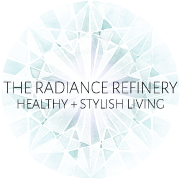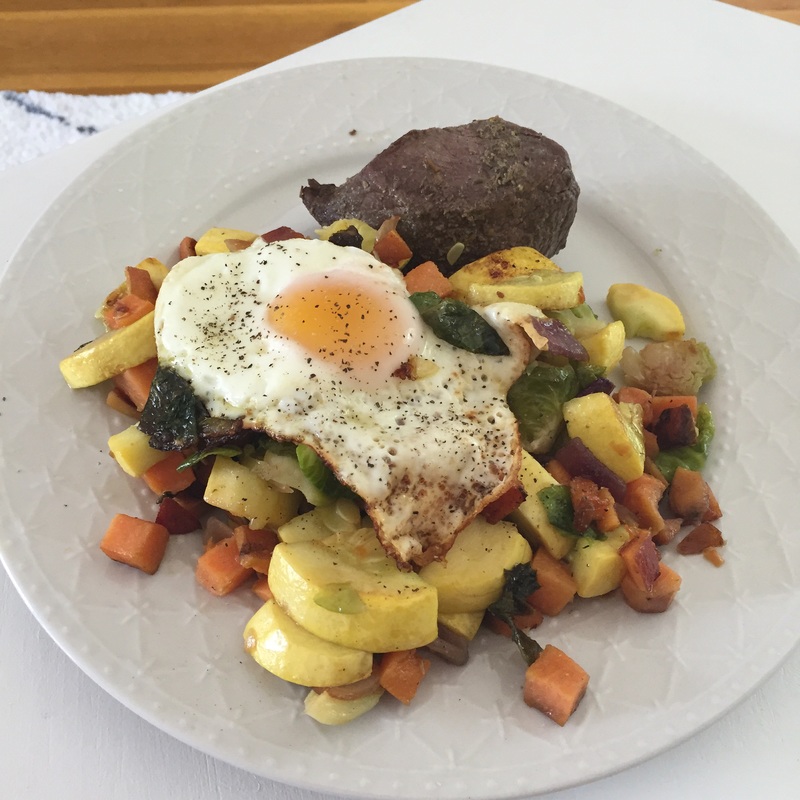|
Many of us go through life feeling "good enough" or summarize our lack-of-bounce to the natural wearing down process. Not only is this a sad, but it's so inaccurate! You do have the potential to feel amazing as you age and the simple truth all boils down to nutrients!
Nourishing your body with supplements is sometimes required so that you’re getting sufficient amounts of vitamins and minerals in your system. Not only can deficiencies be caused by an imbalanced diet, they can also be the result of poor digestion and your body's inability to assimilate and absorb nutrients properly. Another culprit is that most produce is sourced from farms with soil that is depleted of minerals. With that said, many people are tempted to take a vitamin or green powder and think they’ve accomplished getting their daily dose and go on with their day, eating “food matter”, aka nonsense, aka faux food that contains more lab-made ingredients than actual life-supplying sustenance. This sustenance I speak of is what is responsible for building healthy cells, blood, organs, your body's natural ability to tackle potential illness and disease = HEALTH. This is where most people are missing the boat...and I can say, I was one of these people who assumed I could get my daily dosage of vitamins with a handful of supplements, eat what I wanted, and I was solid. Seems like instahealth, right? False. Getting natural sources of these vitamins is imperative to your body’s repair system! What many people don’t realize is that most supplements aren’t worthy of even being called “vitamins” because of the particular company's quality standards. My dad, who is an extremely knowledgeable DC, explains it best. He says that with most supplements, the only thing you’re really doing is making expensive pee. Another thing to tack on is the way that you are taking your vitamins. It is believed by many specialists that if you’re taking a handful of supplements at one time (even if they’re high quality), there’s only so much that your body can absorb at once, resulting in, yet again, very expensive urine! SO, let’s get to the exciting part! I never like to highlight the inconvenient truths without following up with the MORE important proactive truths! Here is a breakdown of some of the most abundant sources of some of the most important vitamins! Magnesium regulates chemical reactions in the body, including protein synthesis, muscle and nerve function, blood glucose control, and blood pressure regulation. It is required for energy production and deficiencies can result in muscle cramps, facial tics, lazy digestion, poor sleep, and chronic pain. Natural sources: nuts, seeds, avocado, sea vegetables: seaweed, wakame, arame, kombu, coconut milk, dark leafy greens: raw spinach, kale, bok choy, chard. (It’s best to soak all nuts, seeds, and grains to remove phytic acid, which is a naturally occurring enzyme inhibitor that prohibits your body from absorbing the goodness.) Omega 3’s are required to regulate cardiovascular, immune and inflammatory pathways. Signs of a deficiency include rough or dry/ bumpy skin, dull/ brittle hair and dandruff, soft/ brittle nails, excessive thirst, frequent urination, sleep problems (especially difficulties in settling at night and waking in the morning), attention problems (poor concentration and difficulties in memory), emotional sensitivity (such as depression, excessive mood swings or inexplainable anxiety), pain from inflammation. Natural sources: fish, spinach, oregano, chia seeds, nuts, butternut squash Vitamin D helps the body absorb calcium (one of bone's main building blocks) from food and supplements. People who get too little vitamin D may develop soft, thin, and brittle bones, a condition known as rickets in children and osteomalacia in adults. Other outcomes from deficiency includes metabolic disorders, cancer, cardiovascular disease, autoimmune diseases, infections, cognitive disorders, and/or mortality. Natural sources: fish, egg yolks, liver, and sun helps vitamin production- but be sure to let it soak into your skin before taking a shower! Your body actually needs hours to fully absorb the goodness, to be able to properly receive the benefits. Vitamin C offers protection against immune system deficiencies, cardiovascular disease, prenatal health problems, eye disease, and even skin wrinkling. Some deficiencies include: easy bruising, swollen/ bleeding gums, slow wound healing, dry/ splitting hair, dry skin, nosebleeds, weakened immune system, leaky gut, autoimmune disease, slowed metabolism, swollen/ painful joints. Natural sources: berries, leafy greens, bell peppers, all citrus, kiwi, broccoli, sea vegetables, coconut milk Vitamin K plays a key role in normal blood clotting. This is important to prevent excess bleeding, which can lead to anemia, a condition that causes fatigue, weakness and dizziness. Iron-deficiency anemia is the type that is linked to vitamin K. In this common condition, your body does not have enough erythrocytes, red blood cells that contain hemoglobin, an iron-rich protein that carries oxygen. Meaning, if you are suffering from anemia, not only do you probably have an iron deficiency, it is also wise to make sure you're getting enough vitamin K! Natural sources: leafy greens: spinach, kale, bok choy, chard, romaine, arugula Vitamin B is a unique case because not all types of vitamin B do the same thing. Additionally, the different types of vitamin B all come from different types of foods. Vitamin B-12, for example, is found primarily in meat and dairy products. B-7 and B-9 (and, to some degree, B-1 and B-2) are found in fruits and vegetables. Click here for a full rundown. Natural sources: lentils, whole grains, almonds, leafy greens, seafood, coconut milk Iron deficiency is the most common nutritional deficiency in the United States. Iron is imperative for producing hemoglobin, a protein that assists red blood cells to deliver oxygen throughout your body. So without it, everything suffers—and can lead to anemia. Some symptoms include low energy, difficulty maintaining body temperature, and decreased immune function. Natural sources: sea vegetables, coconut milk, clams, liver, beef, lamb, sunflower seeds, nuts, whole grains, dark leafy greens, cacao. Iodine is required for your thyroid gland to make hormones. If the thyroid doesn't have enough iodine to do its job, feedback systems in the body cause the thyroid to work harder. This can cause an enlarged thyroid gland (goiter), which becomes evident as a swollen neck. Natural sources: sea vegetables, cranberries, organic/ raw yogurt and cheese, potatoes, navy beans, strawberries Potassium is important for a person's muscles to work effectively, including the heart. Potassium also has a role in regulating blood pressure. Low potassium is associated with a risk of high blood pressure, heart disease, weakness, stroke, arthritis, cancer, digestive disorders, and infertility....and on a lighter note, potassium can help combat a pesky hangover! Natural sources: beans, dark leafy greens, potatoes, squash, fish, avocados, bananas, coconuts What's even more exciting about this list is that many of these essential nutrients can be found in the same foods. So, if you're looking for a simple (LEGIT) fix, put more emphasis on the food that you eat and take advantage of nature's medicine! Something I challenge my clients to do before they sit down for a meal is ask, "how much of this plate is going to contribute to the nourishment and healing of my body?" If even half of it is purely for entertainment value, it's time to start reconsidering your food and lifestyle habits. Need a little assistance? Message me today for a complimentary 45 minute Lifestyle Assessment! Note: For those of you who express symptoms of anemia, it’s important to remember that low iron isn’t the only potential culprit. Vitamin B12 and Magnesium deficiencies can also express similar symptoms and can cause anemia. References: https://igennus.com/nutrition/omega-3-science/omega-3-deficiences/ http://www.medicinenet.com/iron_and_iron_deficiency/article.htm http://www.health.com/health/gallery/0,,20798655,00.html http://ods.od.nih.gov/factsheets/VitaminD-Consumer/ http://www.medicinenet.com/vitamin_d_deficiency/article.htm https://draxe.com/vitamin-c-foods/ http://www.livestrong.com/article/390770-anemia-vitamin-k/ www.webmd.com/vitamins-supplements/ingredientmono-35-iodine.aspx?...35...iodine www.webmd.com/vitamins-and-supplements/lifestyle.../supplement-guide-potassium
0 Comments
Your comment will be posted after it is approved.
Leave a Reply. |
Archives
May 2020
Categories
All
|
What Specialists Are Saying About IIN Health Coaches
What is a Health Coach?
All material and information presented by The Radiance Refinery is intended to be used for educational purposes only. The statements made about products, supplements, or treatments have not been evaluated by the Food and Drug Administration (FDA). The information presented on The Radiance Refinery is not intended to treat, cure, or prevent any condition or disease. Please consult with your own physician or health care practitioner before making changes to your diet, exercise routine, or lifestyle.
Privacy Policy Accessibility Cookies


 RSS Feed
RSS Feed